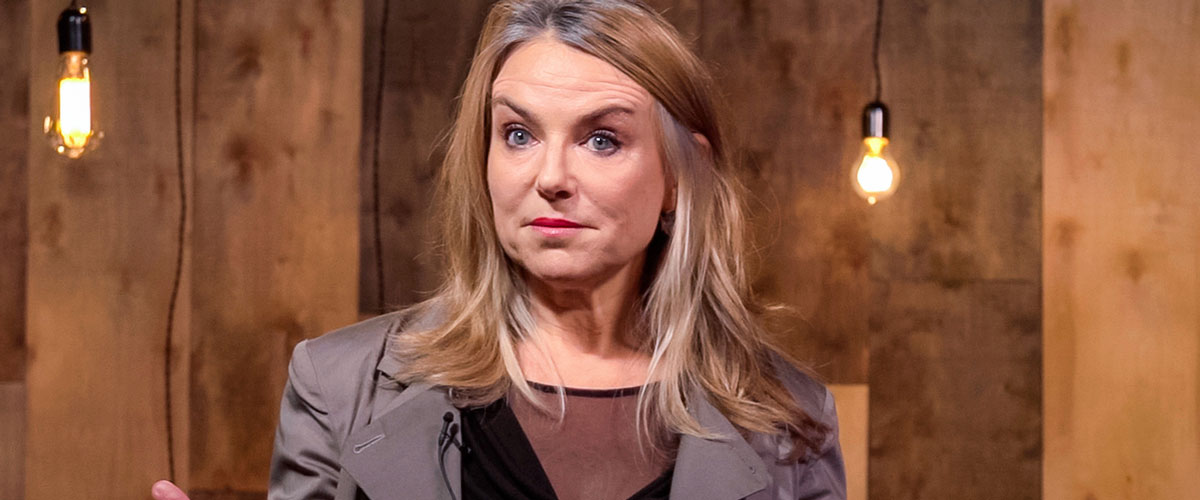For those of you who have been in a long-term relationship, you probably know well that it requires both parties involved to walk a line — to maintain that balance between security and mystery. To find that goldilocks zone between emotionally comforted and heightened at the appropriate times. Many might say, forever with one person is the ultimate challenge, because as we’ve seen by such high divorce rates, it can many times feel unrealistic. The struggle is real. Really real.
 In her TED Talk, Psychotherapist Esther Perel dives into how we as humans can maintain desire in our long term relationships by asking what sustains desire and why it is so difficult to do so. To answer the latter she says this:
In her TED Talk, Psychotherapist Esther Perel dives into how we as humans can maintain desire in our long term relationships by asking what sustains desire and why it is so difficult to do so. To answer the latter she says this:
“At the heart of sustaining desire in a committed relationship, I think, is the reconciliation of two fundamental human needs. On the one hand, our need for security, for predictability, for safety, for dependability, for reliability, for permanence. All these anchoring, grounding experiences of our lives that we call home. But we also have an equally strong need — men and women — for adventure, for novelty, for mystery, for risk, for danger, for the unknown, for the unexpected, surprise — you get the gist. For journey, for travel.”
Related: 5 Ways to Keep Your Marriage Happy At Any Age
Ain’t that the truth. So how do we reconcile these two deep human needs into one lasting relationship?
“In desire, we want a bridge to cross. Or in other words, I sometimes say, fire needs air. Desire needs space. And when it’s said like that, it’s often quite abstract.”
To rid of the abstract, Perel traveled the world and asked those in long term relationships when they were most drawn to their partners. She narrowed them down into two different groups. The first group said they desired their partners when that person was away and they had a chance to miss him or her. The second group said they desired their partners most when they saw them intertwined into their passion or their talent, radiant and confident, like nothing else existed.
So to balance these two catalysts for desire, there needs to be enough space to maintain desire, but not so much space that this person is out of reach. Perel explains this happy medium in which couples who maintain desire consistently know how to find their way back to:
“It’s when I’m looking at my partner from a comfortable distance, where this person that is already so familiar, so known, is momentarily once again somewhat mysterious, somewhat elusive. And in this space between me and the other lies the erotic élan, lies that movement toward the other. Because sometimes, as Proust says, mystery is not about traveling to new places, but it’s about looking with new eyes. And so, when I see my partner on his own or her own, doing something in which they are enveloped, I look at this person and I momentarily get a shift in perception, and I stay open to the mysteries that are living right next to me.”
Perel continues her talk by also describing what turns desire off in many relationships. In her research, she’s found that it comes down to a neediness that brings out the uglier bi-products of desire like: jealousy, possessiveness, aggressiveness and dominance. So the secret she explains is to be able to emit a selfishness in the sense that you don’t lose connection with yourself in the presence of another, but also a selflessness that you will still be a rock for another. If both parties can accomplish this balance of self and balance within the relationship ridding of the negative aspects of desire, desire can be retained.
Check out our article on Esther’s other talk: This Week in TED: Why Do Happy Couples Cheat?
She ends the talk with explaining that couples who keep this desire long-term understand that it’s not always going to feel like one big romantic rush of endorphins and dopamine.
“couples also understand that passion waxes and wanes. It’s pretty much like the moon. It has intermittent eclipses. But what they know, is they know how to resurrect it. They know how to bring it back. And they know how to bring it back because they have demystified one big myth, which is the myth of spontaneity, which is that it’s just going to fall from heaven while you’re folding the laundry like a deus ex machina, and in fact they understood that whatever is going to just happen in a long-term relationship, already has.”
For a more in depth explanation, watch the full talk below:





